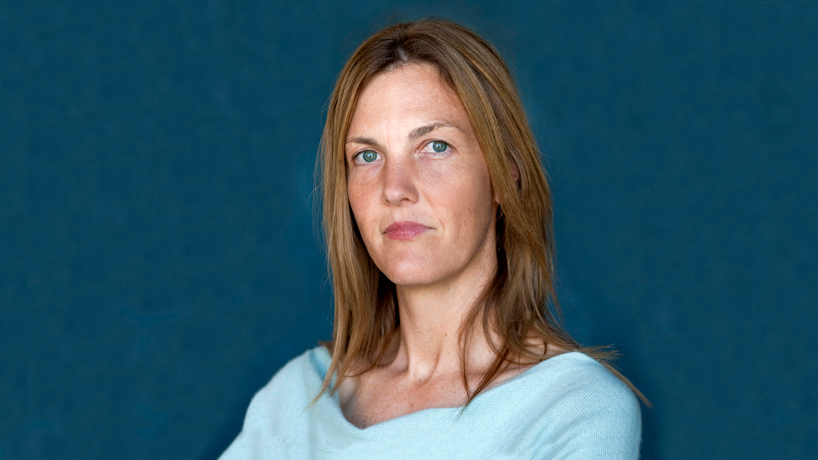
UMSL criminologist Beth Huebner and colleagues Kelli Canada, Clark Peters and Ashley Givens at the University of Missouri–Columbia and Janet Garcia-Hallett at the University of Missouri–Kansas City were recognized with the President’s Award for Intercampus Collaboration for their work to better understand and improve the prison environment in the state. (Photo by August Jennewein)
University of Missouri–St. Louis criminologist Beth Huebner and her colleagues across the University of Missouri System certainly didn’t anticipate the disruption to day-to-day life lurking over the horizon in January 2020.
That’s when the Urban Institute and Arnold Ventures awarded them a $200,000 grant to better understand and improve the prison environment in the state.
Their 4½-year research project is centered at Moberly Correctional Center, an 1,800-bed minimum/medium-security facility in central Missouri. But the team of researchers was only able to make one visit to the prison before COVID-19 precautions closed it off to all visitors. It remains closed today.
Huebner, a professor in the Department of Criminology and Criminal Justice, along with Kelli Canada and Clark Peters, associate professors in the School of Health Professions at the University of Missouri–Columbia, MU assistant professor Ashley Givens and Janet Garcia-Hallett, an assistant professor at the University of Missouri–Kansas City, have had to completely reinvent their efforts to collect data on the living and working conditions from the incarcerated people who live there and the officers who watch over them.
It made it that much sweeter earlier this month when University of Missouri President Mun Choi announced they’d won the President’s Award for Intercampus Collaboration, in recognition of their work.
“It was one of the highest honors,” Huebner said. “We have had to work together as a team to change all of our research products and modes of how we do research. Being able to do that and to stay friends across three institutions is an accomplishment. I’m really proud to be a part of the team.”
They’ve had additional support from doctoral students Victoria Inzana at UMSL and Elizabeth Taylor at MU.
Missouri was among five states the Urban Institute chose to be part of phase 1 of the Prison Research and Innovation Network. Huebner and her colleagues have been working in collaboration with the Missouri Department of Corrections to examine the climate of prisons, and their ultimate goal is to identify strategies for improvements.
To begin to understand the living and working conditions requires community-based research.
“We had originally planned to do participatory research design,” Huebner said, “which means that we would visit the prison quite often, have informal and formal discussions with incarcerated people and staff, and then it was going to culminate in a survey.”
They’ve tried compensating by conducting a series of individual interviews with correctional officers and incarcerated people over Zoom as well as by providing an open-ended questionnaire to people living and working in the prison. They’ve explained their research in email messages and sent snack bags and care packages as a way to build connections and earn trust.
“Thank goodness for technology,” Huebner said. “I was initially very skeptical of interviewing people over Zoom. I’ve only done in-person interviews in prisons before, and I really like the connection you get to the person that you talk to. But I have been very surprised. I feel like we’ve had very long conversations and very detailed conversations.
“It’s been interesting also to see the incarcerated people respond to Zoom who have never seen it before – never seen or interacted with a computer before. They’ve really appreciated that.”
It’s yielded good results. They’ve heard about the importance of small, daily rituals, like time on the yard, healthy food and access to services and health care.
They’ve had to extend their efforts at collecting data through this summer because of the circumstances, but they have avoided any significant setbacks to the project.
“The goal of the first year was to collect as much information, get to know the institution and then make some suggestions,” Huebner said. “Because it’s a collaborative research project, we’ll work in concert with staff, incarcerated people and Department of Corrections to implement changes.”
She envisions a phased implementation with simpler reforms happening more quickly along with longer-term planning to address bigger problems.
Huebner and her colleagues have been awarded three additional years of funding to continue their work.














